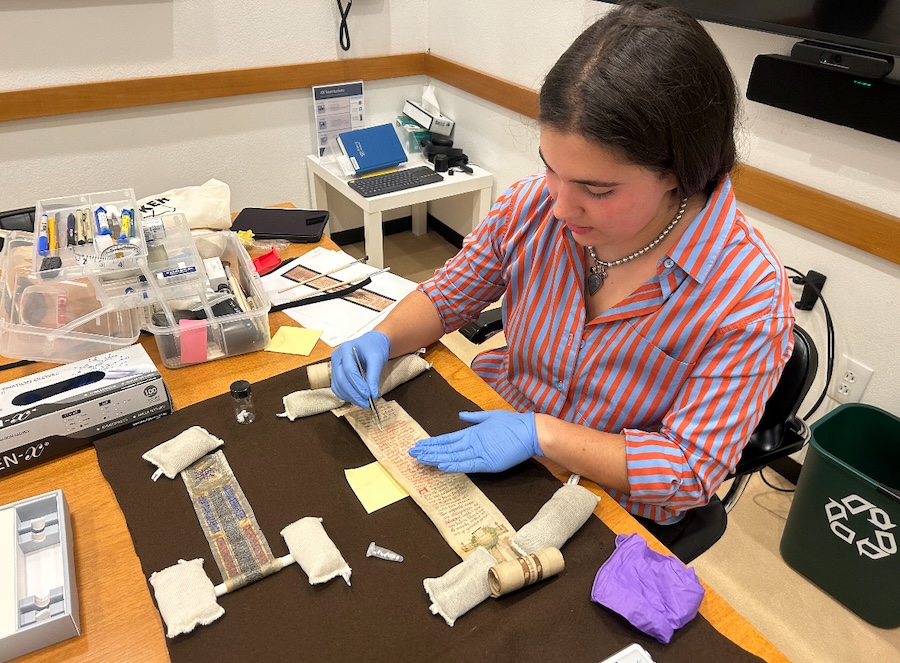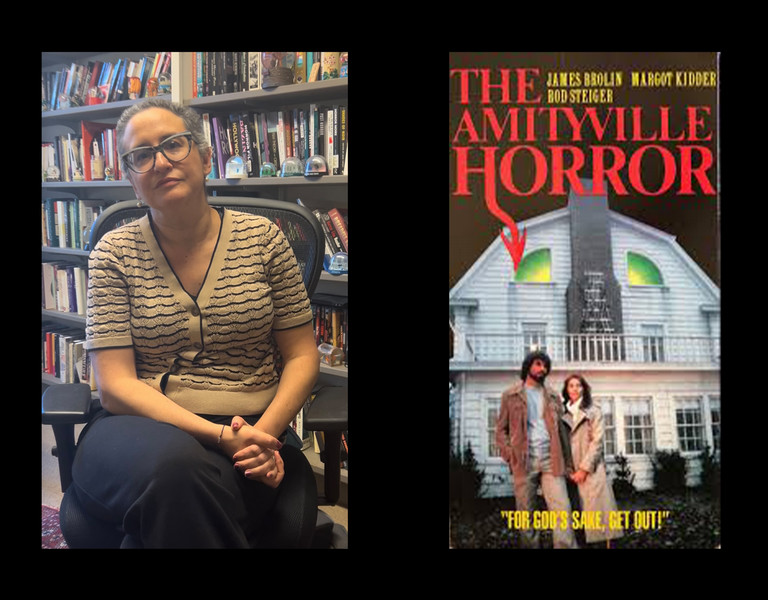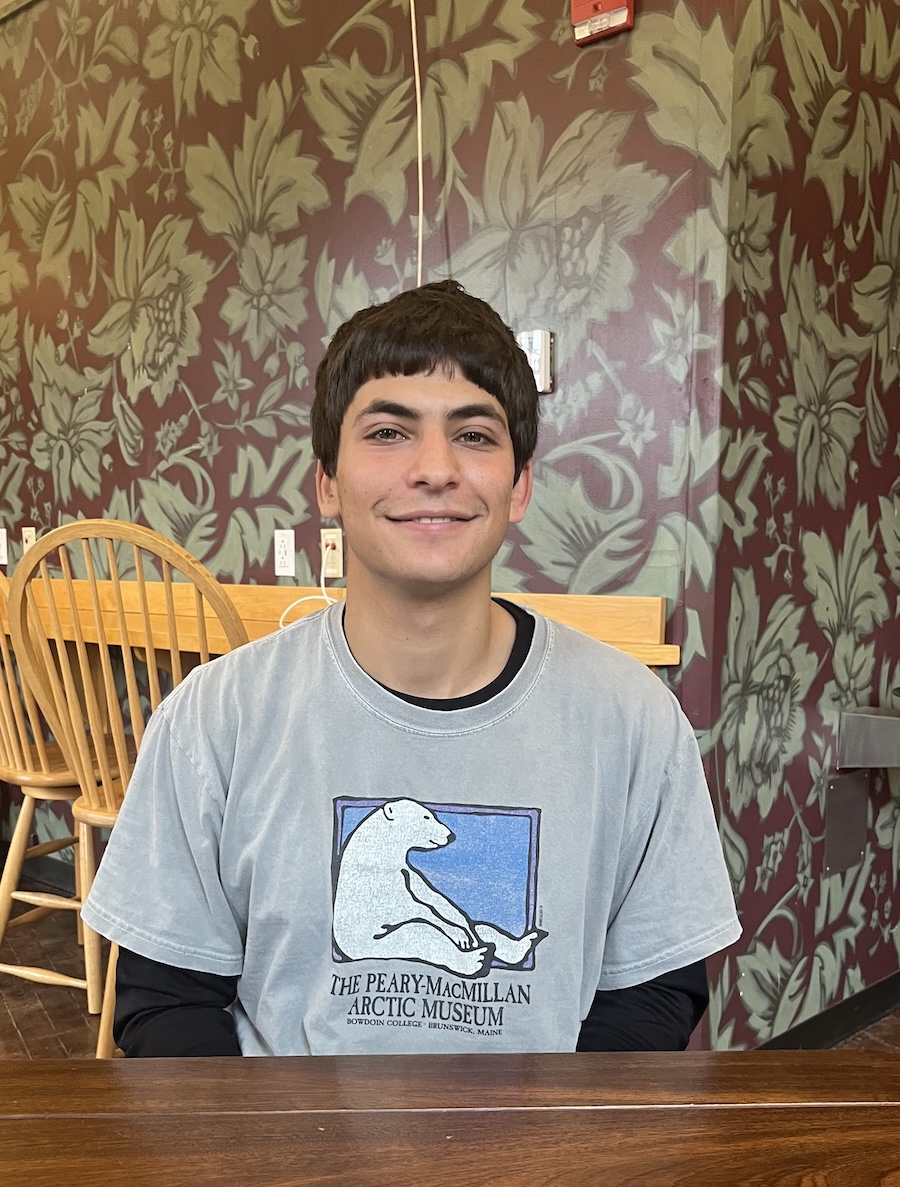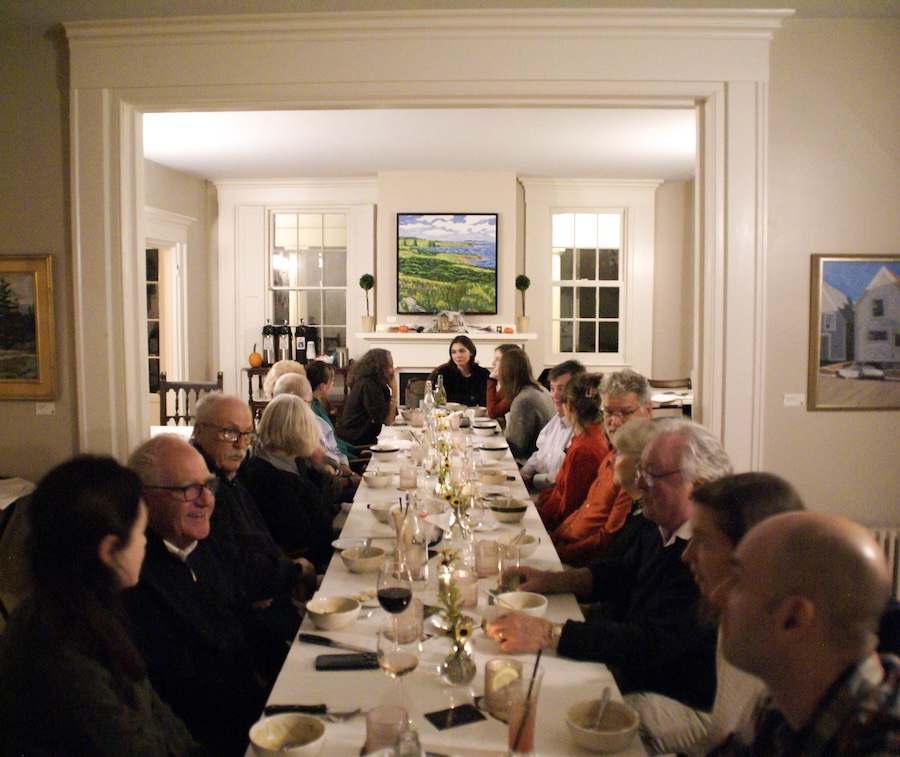Nathan Blum ’20 Sets Out to Write a Novel about Boys and Technology
By Symone Marie Holloway '22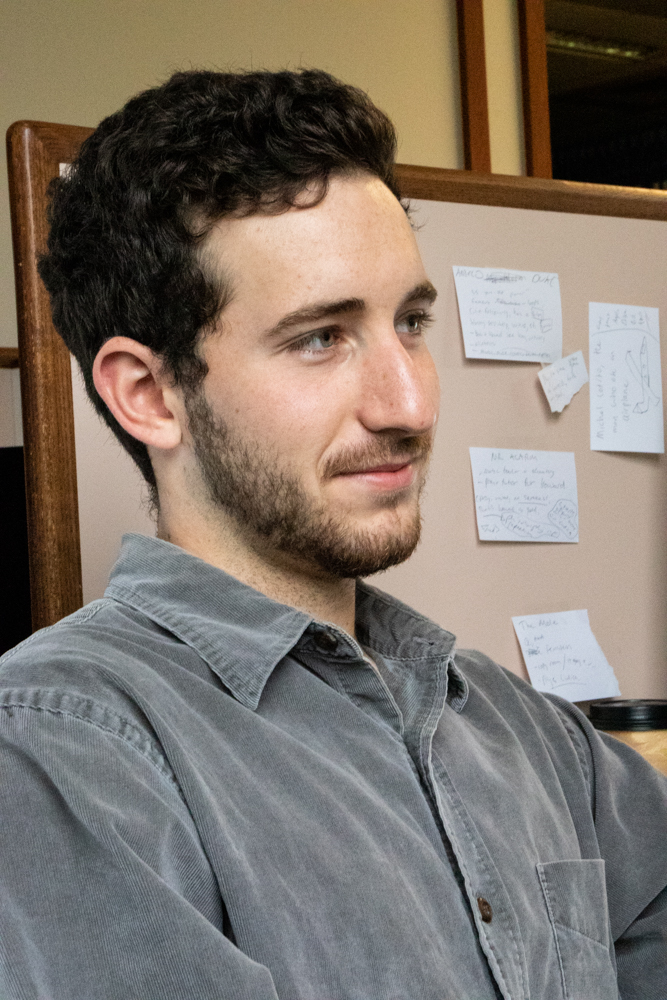
Nathan Blum ’20, an education and English major, is drawing on many of his own experiences for his summer project and future honors thesis, "Non-Prophets: Boys, Technology, and Contemporary Education."
In the book, Blum is interested in exploring the distinction between reality and technology as it plays out in the lives of young boys today. He'll address many of the questions and quandaries that arise from our techno-centric society.
Blum's project is funded by the Micoleau Family Fellowship in the Creative and Performing Arts through Bowdoin. He is one of many students receiving grants to stay on campus this summer.
His faculty mentor, Professor of English Brock Clarke, is excited for the project. "Nate is a terrific writer—smart, funny, curious—and his stories are often about obsessives, people whose lives are both animated by and derailed by their obsessions. His summer project (and the honors thesis to follow) promise to be great."
Blum has taken classes with Clarke since his first-year fall semester, which focused on fiction writing. His current project is fiction, but incorporates elements from his experiences as an education major and mentor. Blum has shadowed K-12 students, sat in on a high school jazz band for a musicology class, taught in an English school while abroad, served as a camp counselor, and is a mentor for elementary students through Bowdoin's McKeen Center for the Common Good.
"It's through all of these experiences, which have mostly come from the education department, where I've definitely noticed young boys find a lot of value, socialization, and fun in video games. But their schools, where they spend most of their time, don't really value them. And neither do their parents," said Blum.
His novel is set in the present, and the main characters are composed almost entirely of young boys. His work will examine the disparity between the importance of video games for children and the lack of importance for adults. "But it's also a way to render how schools, where these boys are spending all of their time, affects students."
Though he concedes details of the plot might change yet because he's in the early stages of writing, he intends his novel to follow the story of a high school student, Howard, who mentors elementary students. One of the mentees and his best friend are extremely addicted to video games and not doing well in school. "The friend gets sent to a school for children addicted to video games—and those exist in real life today," said Blum. It's Howard's mission to go and find them.
"While this is all going on," explained Blum, "Ludica—the video game that everyone is playing—is also a big part of the novel." Blum took elements of popular video games and mashed them together to create the game. His characters play Ludica, for many, many hours, and Blum took care with its many details and intricacies to render a realistic virtual-reality gaming experience.
In his book, Outliers: The Story of Success, journalist Malcolm Gladwell popularized the rule of thumb that it takes 10,000 hours working at something to become a master. Blum did the math, and by those calculations, any student who completes kindergarten through the twelfth grade has become a master in receiving an education or being a student.
They also become experts in other pursuits. "Some kids play a lot of video games over their young lives, and they essentially become masters of gaming. And in a game they might have a ton of money and be rich, but it's not real money," said Blum. However, when that game is better than your day-to-day life, you might value money more there.
Hence, the title of his project, Non-Prophets: Boys, Technology, and Contemporary Education. "We're getting so much advice from people who think they know everything. If you go to a bookstore and look at the shelf, there are all of these prophetic works, 'Here's how to live your life.' And it gets overwhelming," he said.
Meanwhile, young boys have the option to escape into technology—exciting, alluring, enticing games and virtual reality—where they are masters. "So there are these non-prophets who are figuring everything out [in their gaming worlds]. It's also a double meaning in the sense of 'for-profit' because so many video games have in game currencies that don't translate into anything in real life."
But when you have a virtual world where you can get rich, go to the movies, smell a five-star meal, battle samurai in Japan, take amazing photos of your vacation in the Amazon, perform brilliant surgeries, jump, run, and be the best you possibly can, why not stay there? Blum's book will seek to illuminate these questions.
